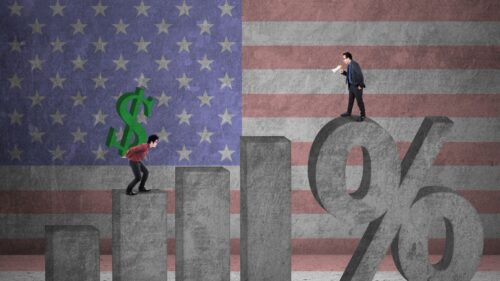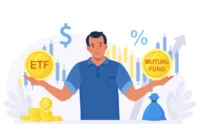In a significant move this summer, Kenya’s leading telecoms operator, Safaricom, extended its innovative mobile money service, M-Pesa, to Ethiopia. Ethiopia is Africa’s second-most populous country and is seen as the “last frontier” for digital banking. M-Pesa has been instrumental in incorporating tens of millions of unbanked individuals into Kenya’s financial system, empowering people to store and transmit money using their mobile phones. A recent study by Wharton doctoral candidate Aparajita Agarwal and Wharton management professor Valentina Assenova sheds light on the transformative impact of such mobile money platforms in emerging economies.
Over the past decade, mobile money has emerged as a dominant force, particularly in regions like sub-Saharan Africa, Latin America and South Asia grappling with inadequate infrastructure in credit markets, commonly referred to as “institutional voids.” These voids impede access to financial products and services, hindering the growth of businesses and limiting economic productivity. The study by Agarwal and Assenova shows how mobile money platforms, through unique features and mechanisms, effectively fill these institutional voids, fostering financial inclusion and economic development.
“Mobile money platforms help out in places where credit information is missing and infrastructure isn’t well developed,” said Agarwal, the paper’s lead author. “Mobile money platforms provide alternative data and fill for the infrastructure gap, causing positive spill-over effects on economic activity for various players in the market.”
Mobile money boosts financial inclusion in three critical ways
Named after the Swahili word for “money,” M-Pesa’s expansion into Ethiopia signifies a transformation in the financial landscape. These platforms stand out by not only capturing economic value but also creating it, disrupting existing industries and expanding market transactions. The distinctive features of mobile money platforms include data-driven business models, distributed value creation and “network effects,” where the value of the service increases for both users and service providers on the platform as more people use it.
The authors argue that these features empower mobile money platforms to address institutional voids in credit markets in three critical ways.
1. Creating a digital record of financial activities.
First, they verify users by assessing digital data on the platform. Mobile money operators play a pivotal role in providing alternative means for lenders to assess creditworthiness, especially for people lacking established credit history. By creating a digital record of users’ financial activities, platforms like M-Pesa enable lenders to make informed decisions on loan approvals. “These platforms create a digital record of users’ financial activity, such as their recent transactions — data that can help lenders make decisions on whether someone is able to pay back a loan,” Agarwal explained.
2. Simplifying access to financial services.
Second, they offer simplified access to financial services. Through their decentralized networks, mobile money platforms connect various financial services and products from partners like banks. This one-stop-shop approach fills gaps caused by limited access points, such as bank branches, in emerging economies, facilitating the distribution of financial products. “Mobile money is providing a one-stop-shop to access a whole range of financial services,” Agarwal said.
3. Establishing a massive network of users.
Third, these platforms leverage network effects to speed up their growth, allowing them to quickly expand and reach millions of new users who previously didn’t have access to banking services. M-Pesa has more than 51 million customers across seven African countries. This not only enhances financial access but also serves as a bridge to established financial groups like banks, credit unions and microfinance institutions, facilitating credit access for individuals and businesses alike.
“These loans help individuals and small businesses expand their growth and enhance their productivity. In the absence of credit, small businesses cannot grow,” Agarwal said, highlighting the deficiencies in traditional financial systems.
Policy reforms can broaden financial inclusion and sustain growth
To reach these conclusions, the study delved into the impact of regulatory changes that allowed non-banking entities, including mobile network operators and fintech start-ups, to introduce mobile money platforms. Analyzing data from more than 71,000 adults before the reforms in 2014 and some 80,000 adults after the reforms in 2017 across 78 countries, the authors discovered that initially, only 11% had access to formal financial services. Post-regulatory changes, mobile money usage increased and access to credit from formal financial institutions rose significantly, with the reforms leading to a 22% rise in the likelihood of borrowing.
“The increase was even more significant for women, the poorest individuals and those with limited education,” said Agarwal, indicating that mobile money platforms have played a crucial role in broadening financial service access in emerging and developing economies.
The research carries significant implications for policymakers and regulators. The findings suggest that regulatory reforms welcoming new entrants into the financial services sector can potentially boost financial access. “By enabling the launching of these platforms, governments can promote more collaborations between mobile money platforms and traditional financial institutions, thereby fostering innovation and co-creation in the financial sector,” said Assenova. “This provides more products and services on the rail of mobile money, so policymakers can contribute to sustainable growth and development.”
[Knowledge at Wharton first published this piece.]
The views expressed in this article are the author’s own and do not necessarily reflect Fair Observer’s editorial policy.
Support Fair Observer
We rely on your support for our independence, diversity and quality.
For more than 10 years, Fair Observer has been free, fair and independent. No billionaire owns us, no advertisers control us. We are a reader-supported nonprofit. Unlike many other publications, we keep our content free for readers regardless of where they live or whether they can afford to pay. We have no paywalls and no ads.
In the post-truth era of fake news, echo chambers and filter bubbles, we publish a plurality of perspectives from around the world. Anyone can publish with us, but everyone goes through a rigorous editorial process. So, you get fact-checked, well-reasoned content instead of noise.
We publish 2,500+ voices from 90+ countries. We also conduct education and training programs
on subjects ranging from digital media and journalism to writing and critical thinking. This
doesn’t come cheap. Servers, editors, trainers and web developers cost
money.
Please consider supporting us on a regular basis as a recurring donor or a
sustaining member.
Will you support FO’s journalism?
We rely on your support for our independence, diversity and quality.










Comment